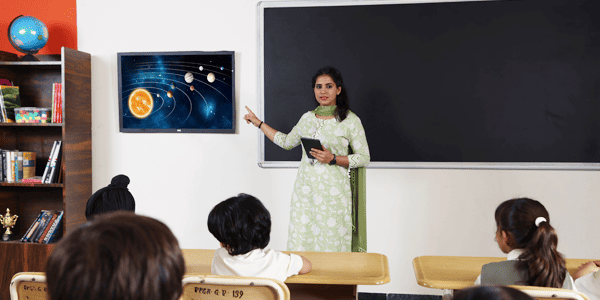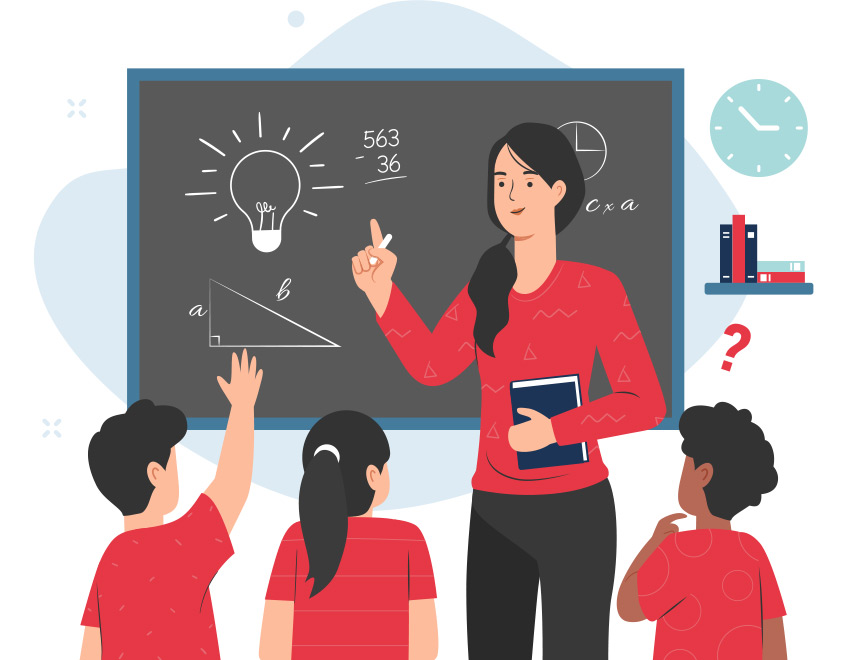Affordable Primary Science Tuition Singapore for All Learning Needs
Affordable Primary Science Tuition Singapore for All Learning Needs
Blog Article
Discovering the Various Mentor Methods in Primary Science Education Today
Inquiry-based understanding, hands-on experiments, and the combination of modern technology are redefining just how instructors engage young minds. In addition, collective strategies and differentiated guideline are being utilized to provide to the diverse requirements of students, improving both engagement and understanding.
Inquiry-Based Discovering
Inquiry-Based Discovering (IBL) is a pedagogical strategy that motivates pupils to discover clinical principles through wondering about, examination, and hands-on testing. This technique highlights the function of students as energetic participants in their learning, advertising crucial thinking and problem-solving abilities. By involving with real-world questions, trainees become interested and determined, which improves their understanding of scientific principles.
In IBL, instructors work as facilitators, guiding trainees as they navigate their queries instead of delivering info directly. This student-centered technique allows for differentiation, fitting different finding out rates and designs. Students establish abilities in creating theories, making experiments, and evaluating data, which are vital for clinical proficiency.
Additionally, IBL cultivates collaboration amongst pupils, encouraging them to share searchings for and concepts. This cumulative questions advertises social abilities and a sense of community within the classroom. Moreover, the process of inquiry encourages durability, as students find out to welcome failing as a tipping rock toward understanding.
Hands-On Experiments
Hands-on experiments are an essential element of efficient science education and learning, matching the concepts of inquiry-based knowing. These experiments allow pupils to engage directly with clinical ideas, cultivating a deeper understanding through experiential understanding. By controling materials and observing results, young learners can grasp abstract concepts in tangible means.
Such tasks promote important reasoning and analytical skills, as students assume results, conduct experiments, and assess results. This procedure encourages them to ask inquiries, refine their understanding, and develop a clinical mindset. Hands-on experiments can be customized to varied understanding designs, guaranteeing that all students have the chance to engage meaningfully with the web content.
Additionally, hands-on experiments usually encourage cooperation among peers, promoting team effort and interaction skills. Operating in teams enables pupils to share ideas, go over searchings for, and discover from each other, which boosts their overall instructional experience.
Incorporating hands-on experiments into the primary science educational program not just improves the finding out atmosphere yet additionally grows a lifelong passion in scientific research. By actively participating in their education, pupils are more probable to develop a passion for scientific questions that expands past the class.

Innovation Combination
Incorporating technology into primary science education has actually become progressively necessary in promoting pupil engagement and boosting learning results. Using digital tools, such as interactive simulations, digital labs, and academic software program, supplies trainees with opportunities to explore clinical principles in ingenious means. These resources facilitate a much deeper understanding of complicated topics by allowing students to picture and manipulate variables that would be impractical in a standard classroom setup.
In addition, innovation integration encourages individualized discovering experiences. Students can advance at their own rate, reviewing challenging ideas with multimedia resources, which provide to different understanding styles. This adaptability not just supports private growth yet likewise grows a feeling of autonomy in learners.
Furthermore, modern technology works as a bridge to real-world science, attaching trainees with existing research study and specialist contributions. Accessibility to online data sources and clinical journals widens students' point of views on scientific query and cultivates critical thinking abilities.
Collaborative Knowing
Collective understanding plays a vital role in primary scientific research education by cultivating team effort and interaction skills among trainees. This strategy encourages learners to interact, share understanding, and involve in analytic, which boosts their understanding of clinical concepts. By taking part in group activities, students discover to verbalize their concepts, pay attention to varied point of views, and bargain remedies, every one of which are crucial skills in both real-world and scholastic contexts.
Research indicates that joint knowing can result in raised motivation and involvement in scientific research topics, as students locate enjoyment in shared experiences (primary science tuition Singapore). Furthermore, this approach prepares pupils for future collaborative ventures, furnishing them with the skills required for effective synergy in higher education and specialist atmospheres. Ultimately, accepting collective knowing in primary science education and learning can significantly enrich the understanding experience and promote a deeper understanding of clinical questions
Separated Instruction

Differentiated direction can materialize in different ways, such as differing the content, processes, or products of knowing. As an example, instructors may make use of tiered assignments that provide varying levels of intricacy, enabling trainees to operate at their particular preparedness degrees. Furthermore, versatile grouping approaches can assist in partnership among trainees with various capacities, promoting peer learning.
Evaluation plays a critical duty in this technique, as it informs instruction and helps instructors understand each trainee's one-of-a-kind needs. Formative evaluations, such as quizzes and monitorings, can direct teachers in changing their techniques to boost discovering end results. primary science tuition Singapore. Eventually, by implementing distinguished instruction in main science education and learning, educators can grow a much more efficient and fair knowing right here setting, equipping all trainees to reach their full capacity in comprehending scientific phenomena
Verdict
In summary, the varied mentor strategies in primary science education, including inquiry-based knowing, hands-on experiments, innovation assimilation, collaborative knowing, and set apart guideline, jointly add to an extra efficient discovering setting. These methods advertise essential reasoning, analytic abilities, and a deeper comprehension of scientific principles. By executing these techniques, instructors can create helpful and engaging class that attend to the diverse requirements of trainees, ultimately promoting a lifelong rate of interest in science and boosting scholastic achievement.
Inquiry-Based Discovering (IBL) is an instructional method that motivates students to check out clinical principles through questioning, investigation, and hands-on trial and error.Collaborative understanding plays an essential role in primary science education and learning by promoting teamwork and interaction skills among students.Research study suggests that joint knowing can lead to increased motivation and interaction in science subjects, as students locate enjoyment in common experiences.In promoting an inclusive knowing environment, set apart guideline emerges as a vital strategy to fit the varied requirements and capabilities of pupils in primary science education. Ultimately, by implementing differentiated guideline in key scientific research education, instructors can grow a much more effective and equitable knowing setting, equipping all students to reach their full capacity in comprehending clinical sensations.
Report this page